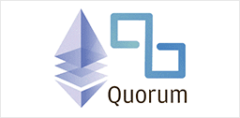
BLOCKCHAIN IN FINANCE
Project Ubin: Blockchain Case Study for Banking in Singapore
A consortium effort that explores the benefits of distributed ledger technology on implementing a real-time gross settlement solution in central banking.
The Future is Here
Singaporean financial institutions are recognized for their efficiency. Their public policy is exported as a blueprint for other central systems around the world. Recently, the Monetary Authority of Singapore (MAS) began exploring the potentials of distributed ledger technology in regards to finance and banking applications.
MAS partnered with a number of financial institutions and enterprise blockchain technology companies, including Consensys Solutions and JP Morgan’s Quorum to create Project Ubin. It successfully implemented real-time gross settlement (RTGS) systems with full transaction privacy and settlement finality while preventing single points of failure. Project Ubin effectively reimagined institutional infrastructure in Singapore by implementing blockchain platforms.
By experimenting with technologies that aim to increase transparency and heighten efficiencies MAS signals that it is ready to future-proof its established processes. By launching Project Ubin, MAS solidifies their rightful place at the forefront of banking innovation and industry leadership.
The Challenge
What is the role of central institutions in a world where cryptocurrencies and tokenization are becoming mainstream? MAS sought to answer this question by launching a discovery project to explore central banking blockchain use cases.
The Enterprise Ethereum Solution
MAS launched a three-phase exercise in partnership with a consortium of international banks, distributed ledger technologies, and blockchain providers.
Phase 1 consisted of a research and feasibility study around the potential applications of blockchain technology.
The study explored:
Benefits and pitfalls of tokenizing central bank currency
Optimizing payment settlements between participating local banks
Steps to enable cross-border transactions
Effective methods of digitizing payments
Phase 2 focused on how to use blockchain platforms and tokenization in the daily settlement and clearing process to enable RTGS.
Phase 3 explored the potentials of a tokenized national currency and realizing cross-border payments through blockchain technology.
Goals Achieved
During phase 2, MAS partnered with Consensys Solutions and JP Morgan’s Quorum enterprise blockchain platform. Together, they successfully demonstrated how a tokenized Singaporean dollar could function as a means of daily inter-bank settlement.
The project’s success stands to transform the international financial landscape. Project Ubin’s results prove that inter-bank transactions, cross-border remittances, and tokenized securities can be settled with distributed ledger technology with full settlement finality and transaction privacy. Further work on this initiative aims to take settlement time from T+3 or T+2 down to T+0. Reducing settlement time fulfills the original promise of the decentralized internet of value by allowing command for a trade and the execution of that trade to happen simultaneously and effectively enabling RTGS.
At the end of Phase 2, MAS provided open-source access to the code and supporting information from the exercise. The South African Reserve Bank (SARB) utilized this knowledge and shared codebase to build Project Khokha. Project Khoka is another landmark Consensys Solutions blockchain initiative that increases transaction volume and network resilience while maintaining confidentiality requirements for real-time gross settlement.
Project Khokha was later recognized by the Central Bank Publication as the “Best Distributed Ledger Initiative” of 2018. By sharing its findings, MAS has actively encouraged global adoption of blockchain solutions by financial institutions.

“DLT has shown potential in making financial transactions and processes more transparent, resilient and at lower cost. The project aims to help MAS and the industry better understand the technology and the potential benefits it may bring through practical experimentation. This is with the eventual goal of developing simpler to use and more efficient alternatives to today’s systems based on digital central bank issued tokens.”
-The Monetary Authority of Singapore
